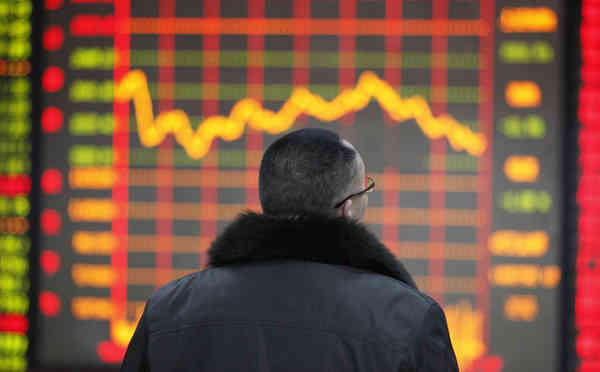-
Tips for becoming a good boxer - November 6, 2020
-
7 expert tips for making your hens night a memorable one - November 6, 2020
-
5 reasons to host your Christmas party on a cruise boat - November 6, 2020
-
What to do when you’re charged with a crime - November 6, 2020
-
Should you get one or multiple dogs? Here’s all you need to know - November 3, 2020
-
A Guide: How to Build Your Very Own Magic Mirror - February 14, 2019
-
Our Top Inspirational Baseball Stars - November 24, 2018
-
Five Tech Tools That Will Help You Turn Your Blog into a Business - November 24, 2018
-
How to Indulge on Vacation without Expanding Your Waist - November 9, 2018
-
5 Strategies for Businesses to Appeal to Today’s Increasingly Mobile-Crazed Customers - November 9, 2018
Yen surges to 4 1/2-month high as yuan slides further
A clerk counts Chinese 100 yuan banknotes at a branch of China Construction Bank in Hai’an, Jiangsu province June 10, 2014.
Advertisement
China’s currency keeps losing value, sparking debate about a global “currency war”.
Investors should expect more volatility in Chinese markets as the government attempts to shift away from a planned economy to one driven by market forces, Mark Mobius, chairman of the emerging markets group at Franklin Templeton Investments, wrote in a blog post on Thursday.
But devaluation fears are returning.
“China is rapidly joining a long list of countries throughout time and history that can not come off an overvalued peg that has created internal imbalances and damaged export competitiveness in an orderly fashion”, said Derek Holt, vice president at Scotia Economics.
“As the yuan moves, worries begin around the world that we could be entering a cycle of competitive devaluations, which is frankly a perverse phenomenon because if all countries end up devaluating, nobody will make itself more competitive”, Mexican Finance Minister Luis Videgaray said.
The Chinese stock market has dominated headlines since the beginning of the year.
Overall, the RMB has weakened by around 10pc against the dollar over the last two years.
“It’s getting into a stage where it is self-fulfilling – the weaker the yuan gets, the more selling there will be”, said Hao Hong, the chief market strategist at Bank of Communications International. It is a hard process to manage, especially as companies and individuals send money out of the country at a rapid rate…”People are anxious about whether they are using currency depreciation to stimulate growth”, said Steven Sun, head of China strategy and Hong Kong and China equity research at HSBC.
China’s currency policies have been a longstanding source of friction with the United States. There is room for the yuan to depreciate further against the dollar since the Real Effective Exchange Rate of the yuan shows that it is overvalued by over 30 per cent.
With risk appetite severely hurt, investors are flocking to low-risk assets such as bonds, gold and traditional safe-haven currencies.
What’s happened to the trade weighted value? . It added that the Singapore dollar could drop to 1.48 against the greenback, from between 1.43 and 1.44 now.
Beijing has been intervening heavily to support its currency and latest evidence suggests it has been drawing down on its reserves on a massive scale.
The reserves fell US$512.66 billion previous year, the biggest annual drop on record. That means it has to avoid capital flight as yuan-holders trade it in for a more stable currency.
“There are equally important factors other than the exchange rate that should be leveraged to ensure external competitiveness to help foster economic growth”. The August move, which was also supposed to serve as a sort of floor for the market, ended up having the opposite effect. This has been offset in the past by cutting interest rates.
Advertisement
“There’s not a lot of stability in terms of policy management in China”, said Perpetual’s Sherwood.





























